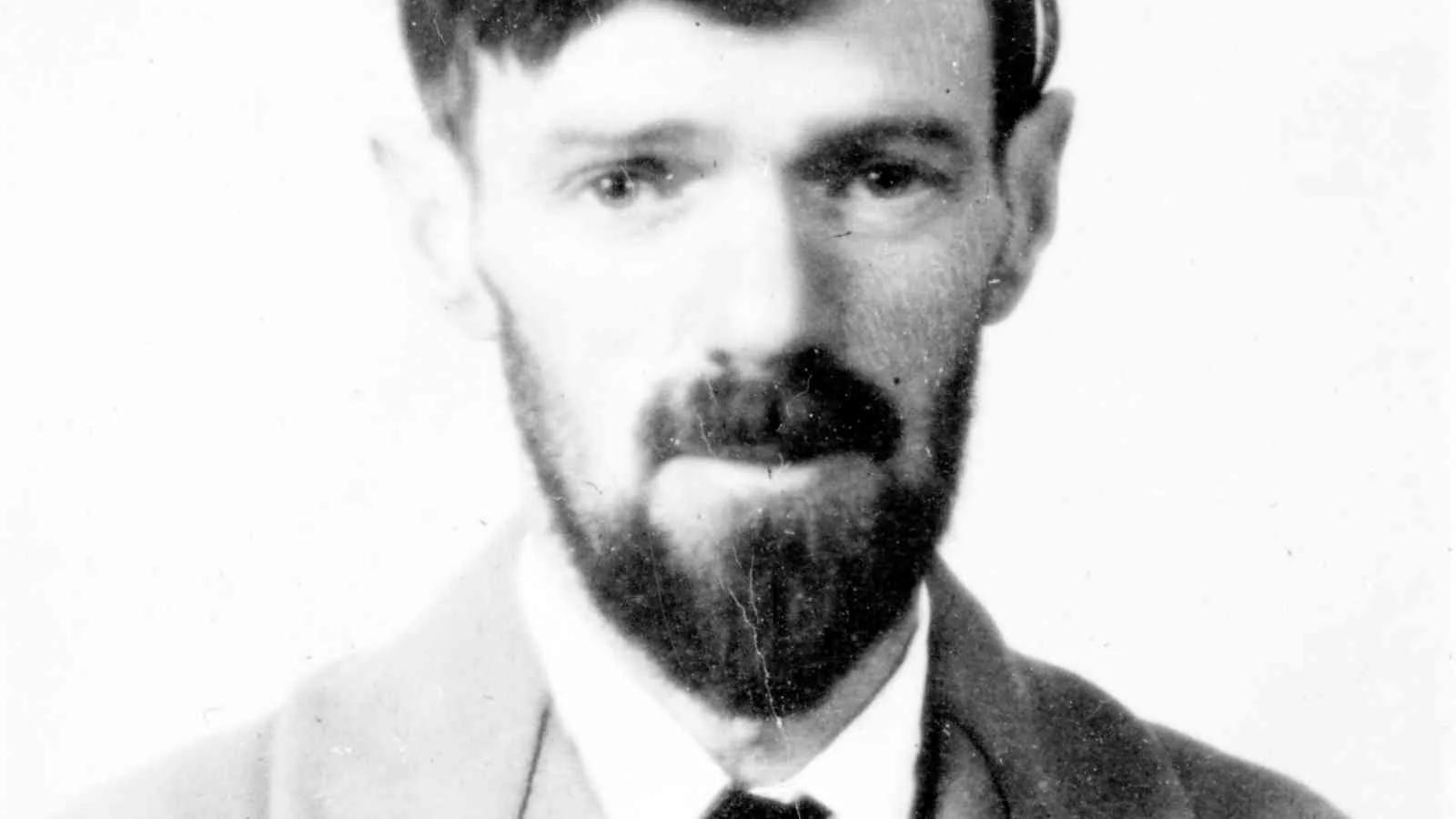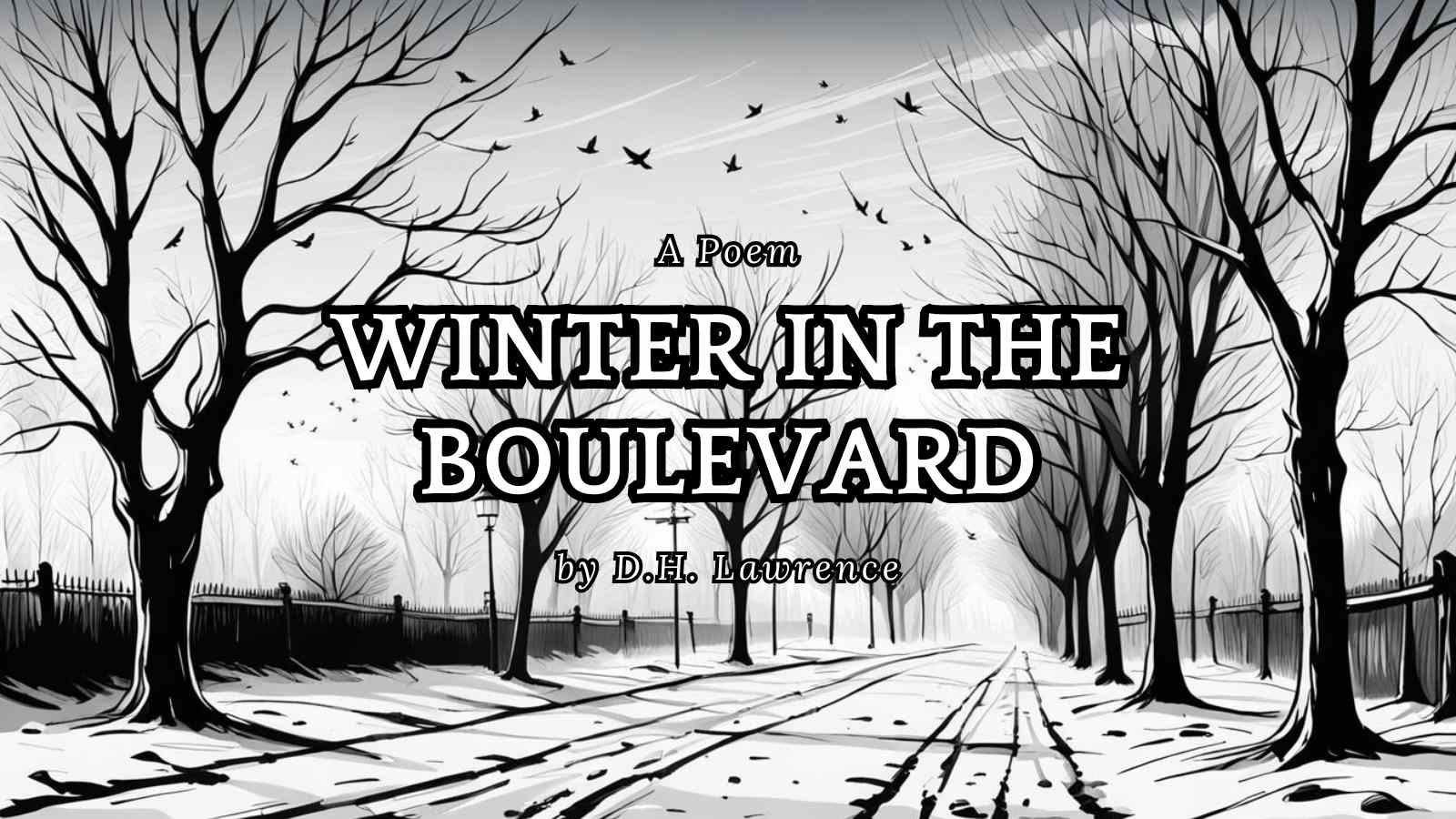D.H. Lawrence was born in 1885 and died in 1930. He was an English poet, author and playwright.
D.H. Lawrence

David Herbert Lawrence, better known as D.H. Lawrence, was born on September 11, 1885, in Eastwood, Nottinghamshire, England. He was the fourth child of Arthur John Lawrence, a coal miner, and Lydia Lawrence, a schoolteacher. Growing up in a working-class family, Lawrence witnessed firsthand the hardships and struggles of the mining community, which would later influence his writing.
Lawrence attended Nottingham High School and later won a scholarship to Nottingham University College. He worked as a junior clerk and a schoolteacher before becoming a full-time writer. In 1912, he met Frieda Weekley (née von Richthofen), a married woman with three children, and fell in love with her. They eloped to Germany and later married in 1914 after Frieda’s divorce.
Throughout his life, Lawrence traveled extensively with Frieda, living in various countries such as Italy, Australia, Mexico, and the United States. These experiences greatly influenced his writing, as he often incorporated themes of cultural differences, primitivism, and the search for a more authentic way of life in his works.
Lawrence’s first major novel, “Sons and Lovers” (1913), was a semi-autobiographical work that explored the complex relationships between men and women. This novel established him as a significant literary figure. He followed this with “The Rainbow” (1915) and its sequel “Women in Love” (1920), which dealt with themes of love, sexuality, and psychological depth.
His most controversial work, “Lady Chatterley’s Lover” (1928), was banned for obscenity in multiple countries due to its explicit sexual content and use of then-unprintable words. The book became a symbol of the struggle against censorship and was not officially published in the United Kingdom until 1960.
In addition to his novels, Lawrence was a prolific short story writer, poet, essayist, and travel writer. Some of his most famous short stories include “The Rocking-Horse Winner” and “The Woman Who Rode Away.” His travel writings, such as “Sea and Sardinia” and “Mornings in Mexico,” provide vivid descriptions of the places he visited and the people he encountered.
D.H. Lawrence’s works often challenged conventional notions of relationships, sexuality, and industrialization. He advocated for a more instinctual, natural way of life and believed in the importance of individual freedom and self-realization.
Lawrence struggled with various health issues throughout his life, including tuberculosis, which eventually claimed his life on March 2, 1930, in Vence, France, at the age of 44.
Despite the controversies surrounding his works during his lifetime, D.H. Lawrence is now widely regarded as one of the most significant and influential writers of the 20th century. His bold exploration of human nature, relationships, and sexuality continues to resonate with readers and inspire new generations of writers.
Winter In The Boulevard by D.H. Lawrence
D.H. Lawrence (1885-1930) was an influential English writer, poet, and essayist. Born in Eastwood, Nottinghamshire,

